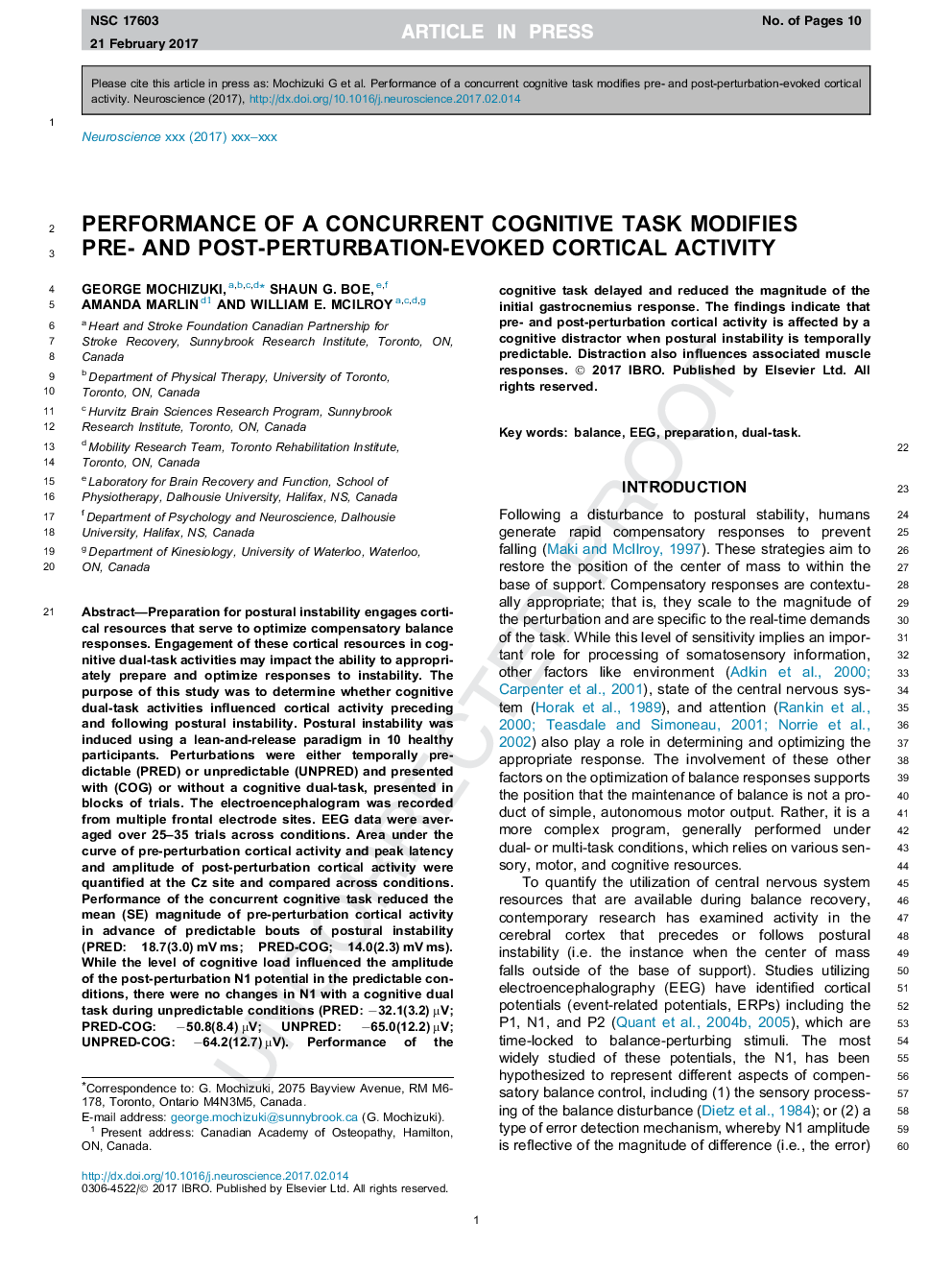| Article ID | Journal | Published Year | Pages | File Type |
|---|---|---|---|---|
| 5737804 | Neuroscience | 2017 | 10 Pages |
Abstract
Preparation for postural instability engages cortical resources that serve to optimize compensatory balance responses. Engagement of these cortical resources in cognitive dual-task activities may impact the ability to appropriately prepare and optimize responses to instability. The purpose of this study was to determine whether cognitive dual-task activities influenced cortical activity preceding and following postural instability. Postural instability was induced using a lean-and-release paradigm in 10 healthy participants. Perturbations were either temporally predictable (PRED) or unpredictable (UNPRED) and presented with (COG) or without a cognitive dual-task, presented in blocks of trials. The electroencephalogram was recorded from multiple frontal electrode sites. EEG data were averaged over 25-35 trials across conditions. Area under the curve of pre-perturbation cortical activity and peak latency and amplitude of post-perturbation cortical activity were quantified at the Cz site and compared across conditions. Performance of the concurrent cognitive task reduced the mean (SE) magnitude of pre-perturbation cortical activity in advance of predictable bouts of postural instability (PRED: 18.7(3.0) mV ms; PRED-COG; 14.0(2.3) mV ms). While the level of cognitive load influenced the amplitude of the post-perturbation N1 potential in the predictable conditions, there were no changes in N1 with a cognitive dual task during unpredictable conditions (PRED: â32.1(3.2) µV; PRED-COG: â50.8(8.4) µV; UNPRED: â65.0(12.2) µV; UNPRED-COG: â64.2(12.7) µV). Performance of the cognitive task delayed and reduced the magnitude of the initial gastrocnemius response. The findings indicate that pre- and post-perturbation cortical activity is affected by a cognitive distractor when postural instability is temporally predictable. Distraction also influences associated muscle responses.
Keywords
Related Topics
Life Sciences
Neuroscience
Neuroscience (General)
Authors
George Mochizuki, Shaun G. Boe, Amanda Marlin, William E. McIlroy,
